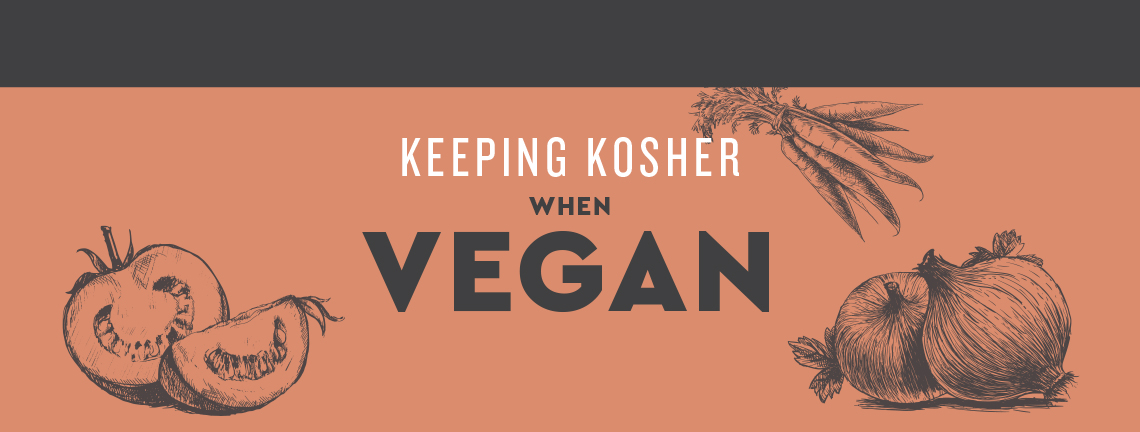Keeping Kosher When Vegan
Going vegan is one of the top culinary trends of 2018, fueled by both health and eco conscious motives, with approximately 6% of Americans currently identifying as vegan.
Vegan food does not contain ANY animal products or byproducts, including meat, dairy, fish, eggs, and honey. Vegan consumer products are occupying more and more shelf space in retail stores and vegan restaurants are popping up all over the country.
For a kosher vegan, there are a good number of kosher certified retail food products, but vegan kosher restaurants are few and far between, leading many kosher observant Jews to wonder whether eating in a non-certified vegan restaurant is really such a big deal. But, despite the limited palate of ingredients, many of which are inherently kosher, there are many issues with a non-certified vegan restaurant.
The kosher diet has two main components – the food needs to be inherently kosher and it needs to be prepared in a kosher manner. The main components of a vegan diet are grains, nuts, seeds and produce, with produce posing a significant kashrus challenge.
What could possibly be wrong with vegetables? Depending on the item, growing location and season, vegetables can be infested with insects. According to halacha, one who consumes insects transgresses multiple sins. Some may say that a vegan restaurant would not serve insects because their consumption is contrary to vegan values; however, experience has shown that the restaurants are not concerned with the small insects commonly found on fruits and vegetables.
Another issue in a non-certified vegan restaurant is Bishul Akum – cooking done by a non-Jew. There are two conditions that make food cooked by a non-Jews prohibited: food that cannot be consumed raw AND is fit to be served to a king. Carrots would be an example of a food that is edible raw. Many vegetables that are served at vegan establishments are edible raw, and of those that are not edible raw, some of them are not fit to be served at a king’s table. However, there are some that may be subject to the prohibition of Bishul Akum, like fancy potatoes, for example, and those would be prohibited. Grains and rice are also subject to the prohibition of Bishul Akum.
A third issue is the equipment in the restaurant. Many restaurants buy used equipment, and it is actually the norm to purchase used equipment, rather than new, due to the great expense involved in purchasing brand new equipment. Obviously, with pre-owned equipment it is impossible to know the prior uses, which were probably non-kosher. There are those that would argue that, although the equipment was previously used for non-kosher, it is “eino ben yomo” (not used for 24 hours) and if the food has already been cooked it is permissible b’di’eved. But, this leniency does not account for the common occurrence of personal food brought in by kitchen staff and either cooked or warmed on the restaurant equipment. Sometimes this is done intentionally, and other times it is done due to staff not knowing or understanding the rules of the kitchen. With the frequency of personal food preparation in restaurant kitchens, it is not possible to rely on “eino ben yomo”.
These three significant issues make it clear that a vegan restaurant can be just as complex as a meat or dairy restaurant when it comes to kashrus and a non-certified vegan restaurant is not permissible according to halacha. A kosher certified establishment has a mashgiach, who diligently works to make sure mistakes don’t happen and constantly checks that all ingredients and preparation processes meet halachic kashrus requirements. For those who adhere to a vegan lifestyle, or enjoy vegan food, be sure to check for a reliable kosher certification before enjoying your meal.







